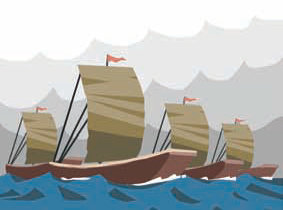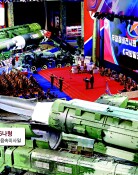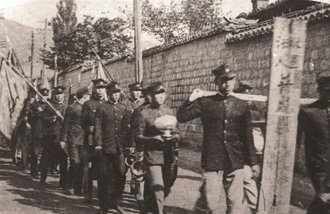Kublai’s failure
Kublai’s failure
Posted August. 13, 2019 07:43,
Updated August. 13, 2019 07:43

Launching an amphibious operation was a risky choice in the days of sailboats. Not the kind where the Marines go aboard boats and row toward the shore and palm trees, but the kind where troops are mobilized with an aim to seize or conquer the coast in the long term. During those days, it was more likely for the troops to be swept away by the waves than to lose battles. Many people guess that the waves would be calm on the shores of the Mediterranean, but it is not the case. When Persia invaded Greece, King Xerxes lost more ships to wind and waves than the ones lost in the Battle of Salamis.
Even if the troops succeeded in landing on the shore, they had to be completely isolated from the other forces, because supporting troops could not easily arrive through sailing with seasonal winds. Thus, they had to fight against enemies with limited resources. Given such difficulties of an amphibious operation, Kublai Khan’s attempt to invade Japan in the late 13th Century was unprecedentedly bold and ambitious, especially as a Mongolian whose troops were not familiar with sea battles.
Kublai’s first attempt took place in 1274, with a force of 23,000 Mongolian and Korean troops. In 1281, the second invasion occurred with 900 ships carrying 40,000 Mongolian and Korean troops as well as a fleet of 3,500 ships with 100,000 Chinese troops. The Chinese ships were hastily made and ill-equipped for naval battles, and the troops already had a long journey from the mainland to Kyushu.
Korean troops of the then Goryeo dynasty fought well in the following battles. Mongolian troops failed to live up to their reputation, while Chinese troops were buried at sea even before they landed on the shores. Those who hate Japan say that the history would have changed if it were not for typhoons. However, just like all other failures, this was also partially caused by human errors. While indecisiveness, a passive attitude, and Japan’s stronger than expected resistance all contributed to the failure of the combined forces, the biggest cause of defeat was their lack of information about Japan. What is needed to win a war is rationality, not passion, cause, or desire. Yet, it seems we are replacing rationality with cause these days. This is not the way that leads us to a triumph. Those who have read at least the first chapter of the Art of War would understand this.
tjdrud0306@donga.com
Headline News
- Korean business leaders urge a halt to commercial law amendment
- Yoon begins extensive verification for cabinet and staff reshuffle
- Police confirm Pyongyang’s involvement in Ether heist in 2019
- Ukraine fires British Storm Shadows at targets on Russian territory
- Ulsan and Pohang compete to crown Korea’s soccer champions







